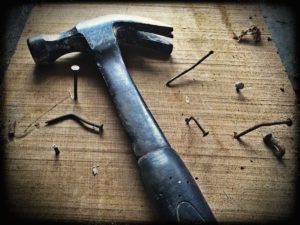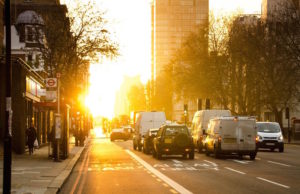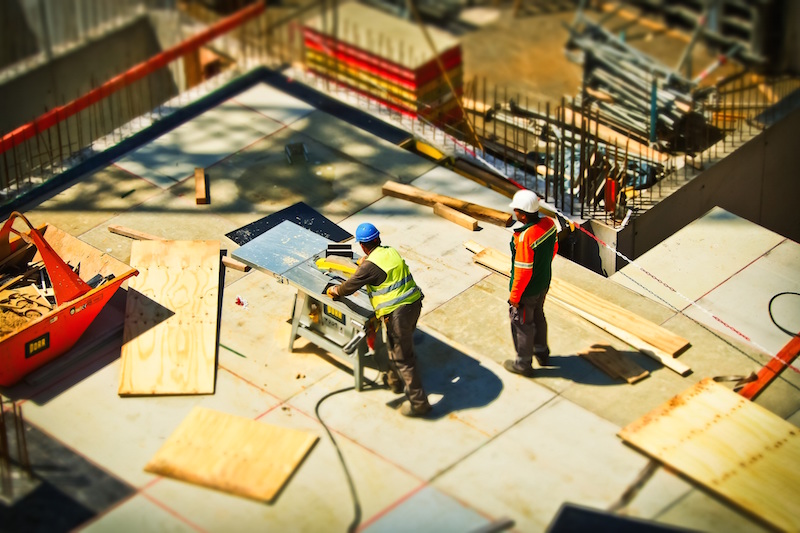Theft of tools has risen by 30%. 64,000 people in the construction industry suffer an injury every year, some of them fatal. That means that, if you’re a builder, insurance is one of those expenses that you can’t afford to ignore. We’ve created this 15 step guide to help you to get the right builders’ insurance. We explain why you need it. Next, we explain exactly what different types of insurance you might need and why. Then, we outline the questions you need to ask to make sure you get cover you can rely on. And finally, we share the tips and tricks that can help you to secure insurance at the best price possible.
1) Why do I need builders’ insurance?
Insurance is a business essential. Many customers will insist on you proving that you’ve got the appropriate level of cover before taking you on. And if something does go wrong, it cushions you financially to protect your livelihood and reputation. But this peace of mind can also be pricey. The saying goes ‘you get what you pay for’ but savvy builders know that you can still negotiate a great deal on insurance you can trust. And this careful balancing act can make all the difference to your profits and long-term prosperity.
2) Understand the financial hazards you face so you can protect yourself
There are many hazards that builders face every day, such as:
a) Health and safety of yourself, your employees and the public
Last year there were 30 fatal injuries amongst construction workers in Great Britain. No matter how rigorous your health and safety procedures, accidents can still unfortunately happen. Given the everyday dangers on building sites, these accidents can frequently lead to death or other life-changing injuries.
b) Expensive damaged caused to property
When you’re carrying out building work, accidents can occur that cause damage to the property where you are working. For example, you’re repairing a roof and a tile falls from the roof and smashes through a conservatory. If it’s your fault, you’ll need to put the damage right.
c) Tool theft
Cases of tool theft from building sites and vans are on the rise. These can be costly to replace, and if you don’t have the cash available to go out right away and buy more, you could be left unable to work and earn.
d) Theft or accident of your works van
You probably rely on your van to get you and your tools to a job. If you have an accident or breakdown, you might struggle to get to work, which could have a negative impact on earnings. Remember, ordinary vehicle insurance won’t be valid if you use your van for business.
e) Your work or advice results in further costs for your client
What happens if a customer is unhappy with the standard of your work or advice you have given? You could be sued for financial compensation.
 3) Shield your business from these risks with builders’ insurance
3) Shield your business from these risks with builders’ insurance
Builders’ insurance is designed to protect you financially from all the risks your building business faces.
4) What should my builders’ insurance cover?
Not every builder will need the same level of cover.
It could include:
- Public liability
- Employer’s liability
- Professional indemnity insurance
- Tools cover
- Van insurance
- Office equipment
- Premises insurance
- Plant cover (for owned or hired plant)
- Stock cover
- Personal accident and illness insurance
- Private medical insurance
- Legal expenses
5) Protect your finances with public liability insurance
Public liability insurance is important for builders and other tradespeople. It protects you financially if someone is injured or their property is damaged because of something to do with your business.
So why do builders need public liability insurance? When someone enters the site, they have a reasonable expectation that they will not be hurt. If they are, they can sue you for negligence – for not keeping the site safe or properly warning them of hazards. No-win, no-fee legal support makes it easy for someone to bring a claim against you. Even if you are found not at fault, the legal fees to get to this point can quickly mount up.
6) What public liability limit do I need?
A minimum of £1m public liability cover is standard, but the amount that you need will depend on the scope of your work and if you have contracts that specify a higher limit.
7) Why do builders need professional indemnity insurance?
What happens if your client claims that the work you carry out, or the advice you give, is flawed? Your client can sue you by claiming you were negligent. This can result in an expensive legal battle and you could be made to pay compensation. Whilst we know that you give your advice and carry out the work to the best of your ability, we know that sometimes mistakes can happen. Professional indemnity insurance protects you financially from claims of negligence giving you peace of mind.
8) Employer’s liability insurance to meet your legal obligations
If you employ any members of staff you are legally obliged to have employer’s liability insurance. Without it, you can be fined. You’ll need employer’s liability insurance even if you only employ someone part-time or as an apprentice.
Employer’s liability insurance is a bit like public liability insurance but specifically covers your staff. It pays out if they are injured by anything to do with your business or if their property is damaged.
 9) Do I need separate tools cover?
9) Do I need separate tools cover?
You need your tools to do your job, but what happens if they are stolen? Tools insurance is specifically designed to cover your equipment and can be tailored to include heavy plant, including hired plant. It’s not always included in every policy, so make sure you check the small print or you could be in for a nasty shock if you do make a claim.
With tools insurance, you can be sure that you can repair or replace damaged or stolen tools quickly. And that means you can get back to work faster to meet your commitments.
10) Van insurance keeps you on the road
Most builders rely on their van to get them and their tools to their job. Insurance is a legal essential if you want to drive your van on the road, but standard vehicle insurance isn’t enough. Builder’s vans need to be covered by special commercial vehicle insurance.
And that’s not all. You may also want to enhance your level of cover with extras. For example, are your tools and building supplies covered for theft or damage whilst in transit in your van? And if you do have an accident, will you be provided with a replacement vehicle of the same size whilst yours is being repaired? IT’S worth checking before you buy your insurance, or you could find yourself in for a lengthy wait when you can’t get yourself and your tools to your job.
 It’s also worth thinking about breakdown cover at the same time. This is often discounted when it’s bought together with your van insurance.
It’s also worth thinking about breakdown cover at the same time. This is often discounted when it’s bought together with your van insurance.
11) Premises and office equipment
Whether you’re a large building firm or a one-man band, don’t forget insurance for your premises and any office equipment that you use, such as your computer.
12) Personal accident and illness cover
In most cases, if you can’t work you can’t get paid. So what happens if you fall ill or have an injury? You could be left unable to work for a period of time, or ever again, depending on the severity, but you’ll still have bills to pay. Personal accident and illness cover are both designed to compensate you for time when you cannot work.
Personal accident or illness insurance is designed for those situations where you have an accident or fall ill and you cannot work for a period of time. It compensates you, so you can still pay your normal household bills. It can also give you a cash pay-out if something happens that means you won’t be able to work again. This can give you real peace of mind, especially if you have a family that relies on you to bring home a wage.
13) Skip the queues with private medical cover
Private medical cover is worth considering if you’re worried about what could happen if your health stops you from working. You might have an accident or fall ill and require treatment. For example, you need an operation to put right a knee injury. Unfortunately, waiting times for operations on the NHS can sometimes be lengthy. With private medical insurance, you get quicker access to operations or can schedule them for a time that is convenient for you. That can mean you can get back to work sooner, and back to earning a wage.
14) Don’t get caught out by contractors’ all-risk cover
All-risk cover is designed to help to reduce any gaps in cover – making life easier for you and the insurance company. but it does not mean that everything is covered. Rather than having long lists stating every potential situation that is covered, it covers all risks EXCEPT those specifically excluded by the policy. You’ll need to familiarise yourself with the small print so there are no nasty surprises in store if something does go wrong.
As a general guide, an all-risk policy normally covers:
- Contract Works
- Public Liability Insurance
- Employers’ Liability Insurance
Policies may be different, but some common exclusions include:
- Any coverage for the pre-existing structure of any buildings
- Errors in the design of the project
- Defective property
- Destruction of property that is outside the scope of the contract
- Acts of war or terrorism
 15) Boost your profits with a better price on your builders’ insurance
15) Boost your profits with a better price on your builders’ insurance
Saving money on your insurance is one way to positively boost your income. But don’t be tempted to skimp or could cost you a lot more in the long run. Instead look for other ways to get the best price on builders insurance:
- Increase the excesses. These are the amount that you automatically pay if you need to make a claim. Generally the higher the excess that you opt for, the lower your premium will be. Take care not to go for too high an excess, or you may negate the benefit of making a claim at all. And be aware that higher excesses don’t always mean a lower premium. It’s best to speak to an independent insurance broker, who can see what difference this can make to your premium for you, and adjust it to find the best value deal on your behalf.
- Pay in one go. Paying for your insurance in monthly instalments almost always costs more than paying in one go. If you can afford to pay annually, do it.
- Try not to make any claims. Staying claim free is the best way to help keep insurance premiums affordable. No one knows what is around the corner. But you can help to reduce your risk of needing to make a claim by taking a rigorous approach to health and safety and security. For example, don’t leave tools overnight in your van and try to park in well-lit areas on a main road to reduce your risk of your van being broken into.
More profit-boosting ways to cut your premiums
- Approach insurance companies that specialise in builders insurance. Not every insurance company wants to take on the risks associated with builders. And that can mean higher premiums. Instead, look for insurance companies or insurance brokers, who specialise in meeting the needs of builders, tradespeople, and the construction industry. These insurance companies will have a greater understanding of your business and the real risks associated with what you do. And that can help them to calculate a better value insurance premium that more accurately reflects the risks you pose.
- Finally, shop around for the best deal. Just like all insurance, don’t just settle for the renewal price or the first quote that you get. If you’d rather be out on site earning, use an independent broker to do this for you. Shopping around can result in substantial savings. When you use an independent insurance broker you’ll also get the benefit of being clear exactly what you’re buying. And your broker can also take control if you do need to make a claim, leaving you free to concentrate on your job.
In conclusion, as a builder you’ll face many threats to your livelihood. But the right insurance, at the right price, can help you to reduce these risks. And that means you can focus on working hard and enjoying the rewards of your labour. Take the time today to go through each of the steps above and enjoy peace of mind that you’re covered no matter what goes wrong.

